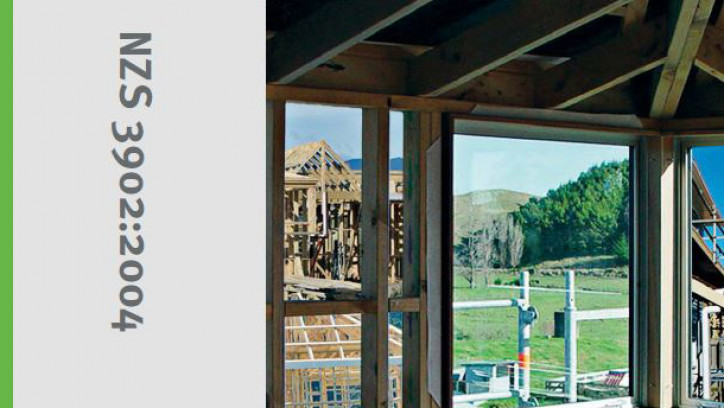This page is for owners of commercial, public, multi-unit residential and other buildings, including residential properties with a cable car (primarily buildings that require an annual Building Warrant of Fitness).
New Zealand Standard NZS 3902:2004 Housing, alterations and small buildings contract
If you are planning to build or renovate, make sure you understand the building process and read all the website sections relevant to your project. These are general rights and obligations, with the full requirements set out in the Building Act 2004 and its regulations. If you use appropriately qualified professionals, they should be able to assist you.
Building work and owner obligations
If you are planning building work, the building owner needs to:
- ensure any building work complies with the Building Code and the Building Act 2004
- apply for a building consent if one is required, confirming the work will comply with requirements of the Building Code (this includes construction, alteration, demolition and siteworks, although some low-risk work is exempt) and apply for any other consents
- tell the council about:
- who will do any restricted building work (provide the name(s) of the Licensed Building Practitioners who will do or supervise the work)
- any changes to the consented plans as you progress
- a planned change of use for a building
- an extension of life for a building with a specified life
- the subdivision of a property with an existing building
- any alterations, even if they don’t require a building consent (alterations can trigger upgrade requirements, such as smoke detectors or insulation)
- build to the consent
- organise council inspections
- ensure your contractors act on any notice to fix and have the work re-inspected
- prohibit access or apply for a certificate for public use to permit certain access if the work will affect all or part of a building intended for public use
- apply for a code compliance certificate on completion of building work that requires a building consent
- maintain the property and meet any Building Warrant of Fitness obligations.
You can’t contract out of these obligations, but you can get someone to do them on your behalf. For example, your main contractor, architect or project manager might submit your building consent application.
Construction Contracts Act protection
If you have entered into a contract for construction work your contract is covered by the Construction Contracts Act 2002.
New Zealand Standards for construction contracts, available for purchase from Standards New Zealand website, are:
- NZS 3910:2013 Conditions of contract for building and civil engineering construction
- NZS 3916:2013 Conditions of contract for building and civil engineering construction – Design and construct
- NZS 3917:2013 Conditions of contract for building and civil engineering construction – Fixed term contracts
Seek legal advice before signing a contract.
Resolving problems includes information about what to do if things go wrong.
Building work and premises intended for public use
If you are building or working on a building intended for public use, you can’t let people access it during building work unless the council confirms it is safe to do so.
To get council confirmation you need to apply for a certificate for public use. You will still need to apply for a code compliance certificate once you’ve completed the building work.
Public access during a build explains who this affects and how to apply.
Commercial on-seller obligations
If you are building, or arranging to have built, a household unit for the purpose of selling it you must get a code compliance certificate before completing the sale, or before allowing a purchaser to take possession of the unit. The only exception is if the on-seller and purchaser sign an agreement to waive this requirement.
Get the build signed off explains sign-off responsibilities.
Ongoing owner obligations
As the owner of a building you are obliged to provide annual evidence that your building meets health and safety requirements, called a Building Warrant of Fitness.
You need to ensure:
- your building has a compliance schedule for any specified systems (where this is a requirement of the Building Act)
- inspection, maintenance and reporting procedures are carried out as required by any compliance schedule for specified systems, including ensuring:
- an appropriately qualified person does all necessary inspections, maintenance and reporting (for example, an Independent Qualified Person or IQP)
- the compliance schedule is readily available for inspection by authorised persons
- a current building warrant of fitness is prepared and displayed
- you maintain the building in a safe and sanitary condition at all times, including:
- taking appropriate measures regarding building work and premises intended for public use
- testing for legionella bacteria on a regular basis
- you get professional engineering advice and act on it, if there are concerns about building safety in earthquakes.
Building warrant of fitness explains the requirements.
Owner responsibilities when using employees and agents
In most instances, a building owner will engage specialists for the design and construction of all or part of any proposed building work. They might also employ specialists to carry out compliance schedule procedures.
If the Building Act is breached the owner is likely to be fully liable. However, any agent of the owner is responsible for the work they do or the advice they give in relation to compliance.
Building management following a major emergency
If a major event damages your home, workplace or property it may need a rapid building assessment. This is to ensure it is safe to enter, safe to occupy and does not risk the safety of others.
Managing buildings in an emergency guidance explains your rights and obligations as well as the council assessment process.
Earthquake-prone buildings
The Building Act introduced provisions to improve the likelihood of earthquake-prone affected buildings withstanding earthquakes.
Earthquake-prone buildings has more information.
Building infringement scheme guidelines
Building infringement scheme guidelines sets out details of the penalties that councils can impose under the Building Act and its regulations.
The LINZ website
Information about property owner rights, property locations, features, boundaries and ownership.
Visit the LINZ website
Key rights and responsibilities

